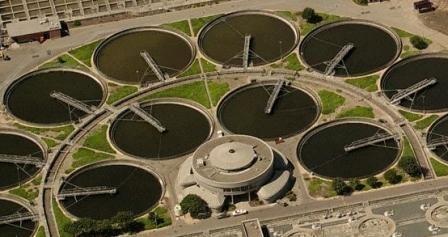
05/03/2015
Wastewater that produces green energy
Wastewater that produces green energy
Wastewater contains an elevated amount of chemical energy in the form of organic contaminants. In order to make use of this energy, researchers from around the world study ways to recover it in the form of hydrogen, a process which efficiently eliminates organic matter from wastewater. It not only reduces the amount of energy needed during the process, it also obtains energy from the produced hydrogen.
The key to achieve this is what is known as microbial electrolysis cells (MEC), a very special type of bacteria capable of generating electricity which in turn produces hydrogen.
At the UAB University that the Barcelona Synchrotron Park works with, Researchers from the Bioelectrochemistry group of the Department of Chemical Engineering have achieved to improve the energetic efficiency of the cells. The scientists, coordinated by professors Albert Guisasola and Juan Antonio Baeza, used real wastewater and achieved a biological production of hydrogen and, to a large extent, the recovery of a good part of the energy contained in the residues.
High hydrogen production and energy intensity were obtained through the wastewater treatment: these results are the basis for a potential industrial development of this technology and therefore for the creation of systems capable of producing hydrogen from wastewater treatment.
News based on the press release issued by the UAB.
The key to achieve this is what is known as microbial electrolysis cells (MEC), a very special type of bacteria capable of generating electricity which in turn produces hydrogen.
At the UAB University that the Barcelona Synchrotron Park works with, Researchers from the Bioelectrochemistry group of the Department of Chemical Engineering have achieved to improve the energetic efficiency of the cells. The scientists, coordinated by professors Albert Guisasola and Juan Antonio Baeza, used real wastewater and achieved a biological production of hydrogen and, to a large extent, the recovery of a good part of the energy contained in the residues.
High hydrogen production and energy intensity were obtained through the wastewater treatment: these results are the basis for a potential industrial development of this technology and therefore for the creation of systems capable of producing hydrogen from wastewater treatment.
News based on the press release issued by the UAB.
More news
09/11/2016
Barcelona, a Bright Spot in the European Digital Landscape
02/11/2016
Malaysia Comes to Discover the Barcelona DC Cluster Initiative Set Up In Barcelona Synchrotron Park
26/10/2016
MIRAS New ALBA Synchrotron Beamline Goes Under Researchers Skin
19/10/2016
Christian Ketels: “Thanks to clusters, Catalonia is much more attractive to foreign companies”
11/10/2016
Barcelona DC Cluster Initiative
06/10/2016
Barcelona Synchrotron Park Sponsors the Fifth Ideas Generation Program









